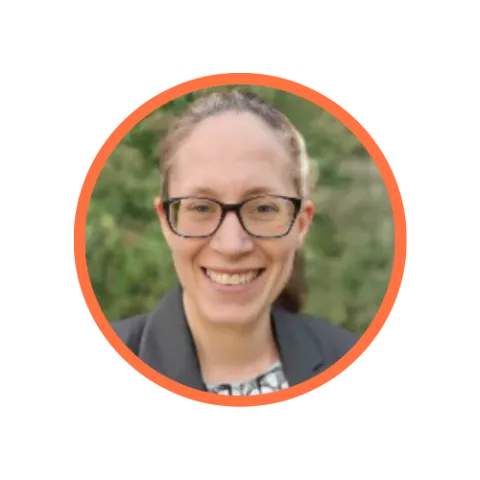UICC & ISOPP Joint Statement: Ensuring quality and equity in cancer treatment
The International Society of Oncology Pharmacy Practitioners (ISOPP)
The Union for International Cancer Control (UICC)
Ensuring quality and equity in cancer treatment
The alarming findings reported in The Lancet Global Health1 reveal that approximately one in six anticancer medication samples collected from public hospitals and private pharmacies across multiple countries in sub-Saharan Africa failed to meet international pharmaceutical standards.
The active pharmaceutical ingredient (API) levels varied dramatically—from as low as 28% to as high as 120% of what was claimed, well outside the acceptable 90–110% range.
“Our findings confirm that patients and health systems in low- and middle-income countries face substantial challenges in consistently accessing high-quality chemotherapy products. The failure of one in six chemotherapy samples in assay testing highlights the vulnerability of current supply chains to poor-quality products and delayed detection. Strengthening regulatory capacity must include routine product testing at the point of entry and the implementation of standardised shipping and storage protocols.”
– Dr Benyam Muluneh, Assistant Professor at the University of North Carolina, Co-author of the study and ISOPP member.
These discrepancies signal both subtherapeutic dosing risks—which can lead to ineffective treatment and drug resistance—and overdosing dangers, which heighten the risk of serious toxicity. The fact that basic visual inspections detected only 10% of the substandard products emphasises the urgent need for more reliable, low-cost screening tools.
The World Health Organization has already previously pointed out that at least 1 in 10 medicines in low- and middle-income countries are substandard or falsified, including cancer medicines and antibiotics.
This is an ongoing issue that urgently needs to be addressed. Achieving equitable cancer care extends beyond ensuring access to medicines—it demands guaranteeing their quality and safety at every level of the supply chain.
UICC and ISOPP commitments
- To urge governments to strengthen regulatory capacity in low- and middle-income countries (LMICs) by investing in laboratory infrastructure, workforce training, and standardised surveillance systems.
- To call on governments and relevant institutions to provide oncology health workers with technical expertise to lead quality assurance efforts, from verifying procurement to monitoring treatment outcomes and pharmacovigilance.
- Advocate for coordinated policymaking and funding, ensuring medicine quality considerations are embedded within universal health coverage and procurement frameworks.
ISOPP’s role
ISOPP’s mission is to advance oncology pharmacy care for patients throughout the world. Oncology pharmacy professionals stand at the frontline of medication safety. ISOPP will:
- Provide education to oncology pharmacists and technicians for outcome monitoring and supply-chain oversight.
- Partner with interested parties to develop quality-control protocols and standard operating procedures to strengthen the global supply chain.
- Facilitate knowledge-sharing across countries and institutions to rapidly disseminate lessons learned and best practices.
UICC’s role
UICC's mission is both to unite and support the cancer community in its efforts to reduce the global cancer burden, promote greater equity, and ensure that cancer control remains a priority on the global health and development agenda. Ensuring quality cancer treatments is a crucial component of cancer control. In this regard, UICC will:
- Advocate for increased engagement by governments and other stakeholders to increase financial support and technical expertise to better implement the WHO Member State Mechanism on Substandard and Falsified Medical Products.
- Engage cancer planners to include medicine quality in national cancer control plans (NCCPs).
- Support multisectoral partnerships that include civil society, oncology pharmacists, and patient groups to raise awareness about the issue.
- Leverage the UICC-led ATOM Coalition, with partners such as the Medicines Patent Pool (MPP) and IDA Foundation, to ensure access to quality-assured cancer medicines by strengthening regulatory systems, improving procurement and supply chains, enhancing diagnostics, and promoting appropriate clinical use — all underpinned by rigorous quality assurance.
“To ensure that no one is left behind, we need urgent, collective action to guarantee the quality of essential cancer medicines. This reflects our focus on equitable access, quality assurance, and health system strengthening in low- and lower-middle income countries.”
– Cary Adams, CEO of UICC.
A call to global action
UICC and ISOPP call upon:
- Governments and regulators to prioritise quality surveillance and invest in necessary laboratory infrastructure.
- All pharmaceutical companies and suppliers to ensure traceable, authenticated, and quality-assured medication throughout the entire supply chain.
- International donors and health agencies to support scalable programs that pair access with rigorous quality control.
- Civil society to collaborate and call for greater transparency from all relevant stakeholders and stronger global accountability mechanisms.
In the pursuit of equitable cancer care, medicine quality is non-negotiable. UICC and ISOPP commit to transforming the insights from this critical investigation into actionable change—protecting patients, strengthening health systems, and upholding the highest standards of global oncology.

Netty Cracknell
MPharm, PGDip, MSc, fBOPA, FRPharmaS (IP)
ISOPP President

Cary Adams
BSc (Hons), MBA (Dist), HonDLitt, HonDSc, HBS Alum
CEO of UICC
Reference: Wilfinger, M.J. et al. (2025) ‘Substandard anticancer medications in clinical care settings and private pharmacies in sub-Saharan Africa: a systematic pharmaceutical investigation’, The Lancet Global Health, 13(7), pp. e1250–e1257. Available at: https://doi.org/10.1016/S2214-109X(25)00138-X.
Last update
Wednesday 09 July 2025